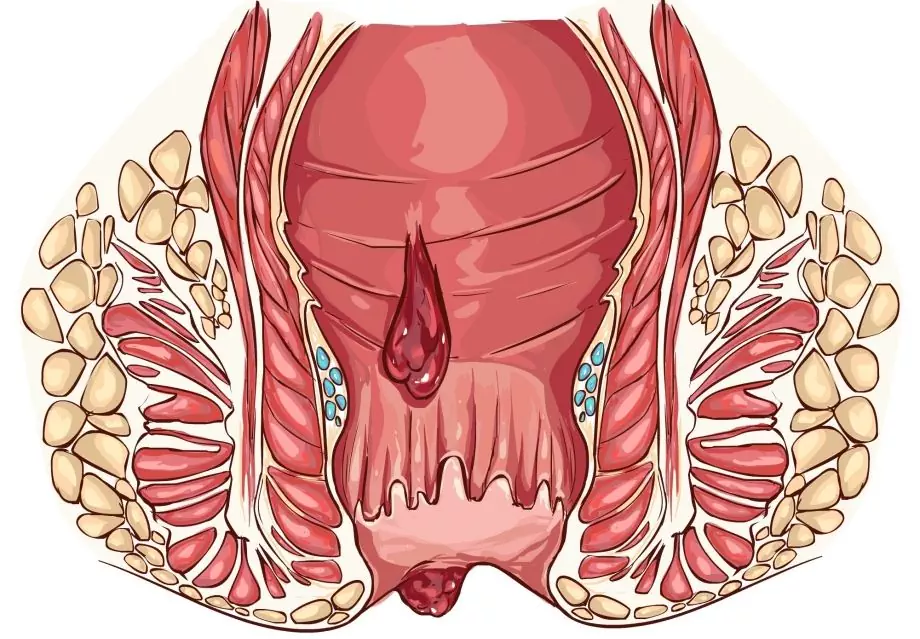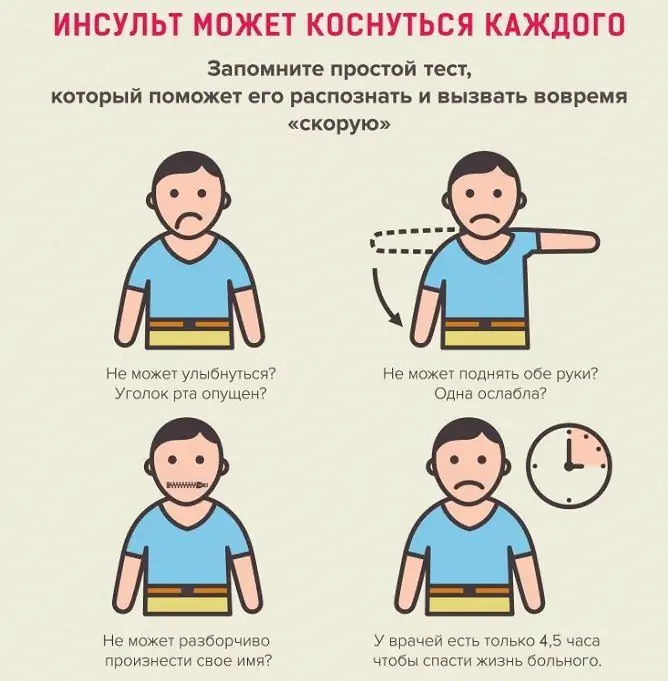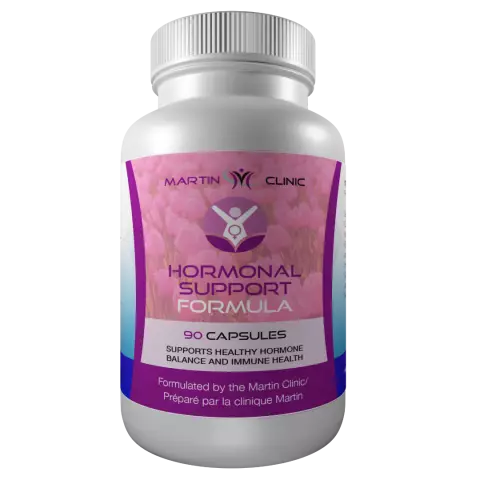- Author Rachel Wainwright [email protected].
- Public 2024-01-15 19:51.
- Last modified 2025-11-02 20:14.
Hormonal disruption in women: causes, signs, treatment
The content of the article:
-
Causes of hormonal imbalance in women
- Risk factors
- The reasons for the physiological changes in hormonal levels
- Symptoms of hormonal imbalance in women
- The consequences of hormonal imbalance
- Diagnostics
- Treatment
- Video
There can be many reasons for hormonal disruption in women, but the result is always the same - hormonal imbalance negatively affects the work of all organs and systems of the body, leading to a deterioration in the general condition. The consequence can be a violation of reproductive function and a number of other pathologies.
Hormonal disruption is an imbalance in hormones caused by their excessive or insufficient production, which entails the development of certain changes in the human body. Early manifestations of hormonal imbalance in women (as in men) can be subtle or completely absent, as well as mimic other diseases, the first obvious signs often appear after a few months, or even a year later.

If signs of hormonal imbalance appear, you need to consult a doctor, self-medication is unacceptable
It should be understood that self-medication with a high probability will only aggravate the condition, if you suspect hormonal disorders, you should consult a doctor. With timely and adequate treatment, endocrine disorders are successfully eliminated.
Causes of hormonal imbalance in women
A pathological decrease or increase in hormone production can occur in the following cases:
- diseases of the organs of the reproductive system;
- unsuccessfully performed surgical intervention on the genitals, endocrine glands;
- inflammatory diseases of the genital organs and hormonal changes, as a result, can develop against the background of sexually transmitted infections;
- congenital disorders that cause a delay in the development of the reproductive system and a violation of the production of hormones;
- misuse of certain medicines, for example, the uncontrolled use of oral contraceptives by women.
Endocrine disorders can be caused by disruption of the normal functioning of the hypothalamic-pituitary system, which is noted in severe traumatic brain injuries, brain neoplasms, encephalitis.
Risk factors
Risk factors for hormonal disorders are:
- some benign and malignant neoplasms;
- infectious and inflammatory diseases;
- pathology of the adrenal cortex, thyroid gland, liver and kidneys.
In addition to diseases, the appearance of a problem can be caused by:
- excessive physical activity;
- sedentary lifestyle;
- violation of normal sleep and wakefulness (including insufficient night sleep);
- decreased immunity;
- overweight;
- stress.
Hormonal disorders often occur after abortion, both after artificial and after spontaneous (miscarriage). However, spontaneous abortion is often not a cause, but a consequence of hormonal disorders.
Malnutrition, especially excessive consumption of fatty foods, can lead to the development of pathology. Regular malnutrition (including adherence to strict diets in order to lose weight quickly) also negatively affects. Hormonal failure in girls and menstrual irregularities against its background are often observed with a body weight of less than 48 kg.
The reasons for the physiological changes in hormonal levels
At certain periods throughout a woman's life, hormonal changes occur, which are absolutely normal. This is the period of puberty, pregnancy, childbirth, lactation, menopause. At this time, there is an increased release of some hormones into the blood, the ratio changes significantly. For example, in women, progesterone, prolactin, estrogens, human chorionic gonadotropin are elevated during pregnancy.
Symptoms of hormonal imbalance in women
Signs of hormonal imbalance include:
- mood swings, irritability, irascibility, anxiety;
- daytime sleepiness, excess sleep;
- significant and unreasonable change in body weight;
- excess body hair;
- hair loss, brittle nails;
- irregular menstruation;
- intermenstrual uterine bleeding;
- decrease in libido up to its complete absence, anorgasmia.
|
condition |
Signs |
| Amenorrhea (absence of menstruation in women of reproductive age) | Obesity, the appearance of stretch marks (stretch marks on the skin), male-pattern hair growth, hair loss on the head, brittle nails. In some cases, bradycardia and a decrease in blood pressure are noted. |
| Menopause | Deterioration of hair, brittle nails, headache, discomfort during sexual intercourse caused by vaginal dryness, mood swings, hot flashes, increased fatigue. A decrease in the level of female sex hormones during this period increases the risk of developing atherosclerotic lesions of the blood vessels, osteoporosis, diabetes mellitus. |
| Premenstrual syndrome | Emotional instability, soreness and tension of the mammary glands, cognitive disorders, anxiety, mood lability, headache, swelling of the face, limbs. |
| Abortion | Menstrual irregularities, unstable blood pressure and pulse, nervous disorders, anxiety, depression, excessive sweating, changes in body weight. |
| Postpartum hormone imbalance | Neurological disorders, depression, an increase or, conversely, a decrease in body weight, the appearance of stretch marks. |
The consequences of hormonal imbalance
In the absence of timely adequate treatment, endocrine disorders can lead to obesity, neoplasms, infertility, myocardial infarction, stroke, uterine myoma, breast diseases, and bone fragility caused by osteoporosis.
Intense dysfunctional uterine bleeding against the background of endocrine disorders can provoke the development of disseminated intravascular coagulation syndrome.

Increased hair loss can be a sign of an endocrine disorder.
Diagnostics
For the diagnosis of endocrine disorders, complaints and anamnesis are collected, laboratory research:
- determination of the concentration of hormones in the blood;
- general blood analysis;
- blood chemistry;
- general urine analysis.
You may also need an examination of internal organs in order to determine possible violations.
Treatment
For treatment, hormonal therapy is used, and vitamins A, E, preparations containing calcium, potassium, selenium, zinc, as well as antipsychotics can be used. In some cases, physiotherapy methods are used.
If it is necessary to terminate a pregnancy, it is recommended to do so in the early stages, which will reduce the risk of developing hormonal disorders and other complications. Surgery may be required to remove a cyst or tumor.
Patients are shown spa treatment. Regular but moderate physical activity, adherence to an adequate regimen of work and rest, normalization of body weight, and rejection of bad habits are recommended.
The table summarizes the basic principles of the diet.
| Principle | Explanation |
| Compliance with a certain interval between meals | The interval should not exceed 3 hours |
| Compliance with the drinking regime | You should consume about 2 liters of water per day |
| Meal time | Breakfast should be no later than 10:00, after the last meal before going to bed, at least 3 hours should pass |
| Maximum food volume | No more than 300 ml at a time |
| Featured Products | Vegetables, fruits, herbs, dairy products, lean meat, fish, seafood, cereals |
| Foods to limit | Butter and fat, sausages, baked goods, pastries, salt, strong tea and coffee |
| Products to be discarded | Alcohol, fast food, salted, smoked and pickled food, carbonated tonic drinks |
Video
We offer for viewing a video on the topic of the article.

Anna Aksenova Medical journalist About the author
Education: 2004-2007 "First Kiev Medical College" specialty "Laboratory Diagnostics".
Found a mistake in the text? Select it and press Ctrl + Enter.






